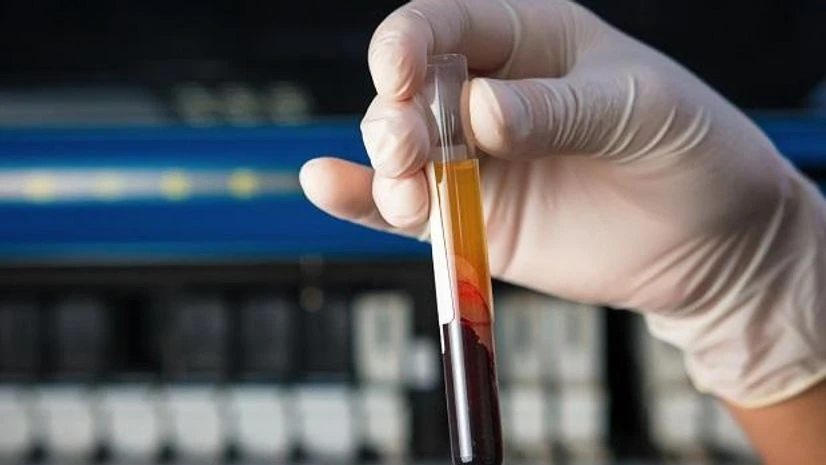Scientists have developed a low-cost, reliable blood test for multiple myeloma that uses a small plastic chip about the size of a credit card, which could make painful bone biopsies a relic of the past.
The diagnosis and treatment of multiple myeloma, a cancer affecting plasma cells, traditionally forces patients to suffer through a painful bone biopsy, said researchers from University of Kansas in the US.
During that procedure, doctors insert a bone-biopsy needle through an incision to get a bone marrow sample - or make a larger incision and remove a section of bone via surgery.
The blood test, described in the journal Integrative Biology, uses a small plastic chip about the size of a credit card that can deliver the same diagnostic information as a bone biopsy - but using a simple blood draw instead.
"For the last 10 years, we have been developing a blood-based test for a variety of cancer diseases - one of them is multiple myeloma," said Steven Soper, a professor at the University of Kansas.
Also Read
"We will be able to eliminate the need for bone-marrow biopsies and allow the clinician to determine the best way to treat the disease using a blood draw," said Soper.
"From this test, the clinician will be able to determine the stage of the disease, what type of drug will best treat the disease and monitor for signs of recurrence if the disease goes into remission," he said.
High levels of circulating multiple myeloma cells are linked with more aggressive disease and worse outcomes, so a sensitive test is vital for assessing the state of the disease in a patient and devising the most effective therapy.
"The chip we are using, because it is made from a plastic, can be injection molded, the same method that is used to produce CDs, DVDs and Blu-ray Discs," Soper said.
"What is really nice is we can produce these chips for a couple of dollars per chip, which makes it really appropriate for testing in a clinical setting," he said.
The technology could have applications across many cancers, making diagnostics easier for patients and clinicians, and helping usher in more tailored therapies that could improve patient outcomes, researchers said.

)
